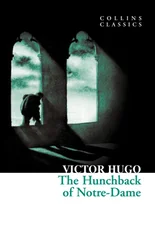Victor Hugo - The Man Who Laughs
Здесь есть возможность читать онлайн «Victor Hugo - The Man Who Laughs» — ознакомительный отрывок электронной книги совершенно бесплатно, а после прочтения отрывка купить полную версию. В некоторых случаях можно слушать аудио, скачать через торрент в формате fb2 и присутствует краткое содержание. Жанр: literature_19, foreign_antique, foreign_prose, на английском языке. Описание произведения, (предисловие) а так же отзывы посетителей доступны на портале библиотеки ЛибКат.
- Название:The Man Who Laughs
- Автор:
- Жанр:
- Год:неизвестен
- ISBN:нет данных
- Рейтинг книги:3 / 5. Голосов: 1
-
Избранное:Добавить в избранное
- Отзывы:
-
Ваша оценка:
- 60
- 1
- 2
- 3
- 4
- 5
The Man Who Laughs: краткое содержание, описание и аннотация
Предлагаем к чтению аннотацию, описание, краткое содержание или предисловие (зависит от того, что написал сам автор книги «The Man Who Laughs»). Если вы не нашли необходимую информацию о книге — напишите в комментариях, мы постараемся отыскать её.
The Man Who Laughs — читать онлайн ознакомительный отрывок
Ниже представлен текст книги, разбитый по страницам. Система сохранения места последней прочитанной страницы, позволяет с удобством читать онлайн бесплатно книгу «The Man Who Laughs», без необходимости каждый раз заново искать на чём Вы остановились. Поставьте закладку, и сможете в любой момент перейти на страницу, на которой закончили чтение.
Интервал:
Закладка:
Then he was frightened, and thought of flight.
The groan again. This was the fourth time. It was strangely miserable and plaintive. One felt that after that last effort, more mechanical than voluntary, the cry would probably be extinguished. It was an expiring exclamation, instinctively appealing to the amount of aid held in suspense in space. It was some muttering of agony, addressed to a possible Providence.
The child approached in the direction from whence the sound came.
Still he saw nothing.
He advanced again, watchfully.
The complaint continued. Inarticulate and confused as it was, it had become clear – almost vibrating. The child was near the voice; but where was it?
He was close to a complaint. The trembling of a cry passed by his side into space. A human moan floated away into the darkness. This was what he had met. Such at least was his impression, dim as the dense mist in which he was lost.
Whilst he hesitated between an instinct which urged him to fly and an instinct which commanded him to remain, he perceived in the snow at his feet, a few steps before him, a sort of undulation of the dimensions of a human body – a little eminence, low, long, and narrow, like the mould over a grave – a sepulchre in a white churchyard.
At the same time the voice cried out. It was from beneath the undulation that it proceeded. The child bent down, crouching before the undulation, and with both his hands began to clear it away.
Beneath the snow which he removed a form grew under his hands; and suddenly in the hollow he had made there appeared a pale face.
The cry had not proceeded from that face. Its eyes were shut, and the mouth open but full of snow.
It remained motionless; it stirred not under the hands of the child. The child, whose fingers were numbed with frost, shuddered when he touched its coldness. It was that of a woman. Her dishevelled hair was mingled with the snow. The woman was dead.
Again the child set himself to sweep away the snow. The neck of the dead woman appeared; then her shoulders, clothed in rags. Suddenly he felt something move feebly under his touch. It was something small that was buried, and which stirred. The child swiftly cleared away the snow, discovering a wretched little body – thin, wan with cold, still alive, lying naked on the dead woman's naked breast.
It was a little girl.
It had been swaddled up, but in rags so scanty that in its struggles it had freed itself from its tatters. Under it its attenuated limbs, and above it its breath, had somewhat melted the snow. A nurse would have said that it was five or six months old, but perhaps it might be a year, for growth, in poverty, suffers heart-breaking reductions which sometimes even produce rachitis. When its face was exposed to the air it gave a cry, the continuation of its sobs of distress. For the mother not to have heard that sob, proved her irrevocably dead.
The child took the infant in his arms. The stiffened body of the mother was a fearful sight; a spectral light proceeded from her face. The mouth, apart and without breath, seemed to form in the indistinct language of shadows her answer to the questions put to the dead by the invisible. The ghastly reflection of the icy plains was on that countenance. There was the youthful forehead under the brown hair, the almost indignant knitting of the eyebrows, the pinched nostrils, the closed eyelids, the lashes glued together by the rime, and from the corners of the eyes to the corners of the mouth a deep channel of tears. The snow lighted up the corpse. Winter and the tomb are not adverse. The corpse is the icicle of man. The nakedness of her breasts was pathetic. They had fulfilled their purpose. On them was a sublime blight of the life infused into one being by another from whom life has fled, and maternal majesty was there instead of virginal purity. At the point of one of the nipples was a white pearl. It was a drop of milk frozen.
Let us explain at once. On the plains over which the deserted boy was passing in his turn a beggar woman, nursing her infant and searching for a refuge, had lost her way a few hours before. Benumbed with cold she had sunk under the tempest, and could not rise again. The falling snow had covered her. So long as she was able she had clasped her little girl to her bosom, and thus died.
The infant had tried to suck the marble breast. Blind trust, inspired by nature, for it seems that it is possible for a woman to suckle her child even after her last sigh.
But the lips of the infant had been unable to find the breast, where the drop of milk, stolen by death, had frozen, whilst under the snow the child, more accustomed to the cradle than the tomb, had wailed.
The deserted child had heard the cry of the dying child.
He disinterred it.
He took it in his arms.
When she felt herself in his arms she ceased crying. The faces of the two children touched each other, and the purple lips of the infant sought the cheek of the boy, as it had been a breast. The little girl had nearly reached the moment when the congealed blood stops the action of the heart. Her mother had touched her with the chill of her own death – a corpse communicates death; its numbness is infectious. Her feet, hands, arms, knees, seemed paralyzed by cold. The boy felt the terrible chill. He had on him a garment dry and warm – his pilot jacket. He placed the infant on the breast of the corpse, took off his jacket, wrapped the infant in it, took it up again in his arms, and now, almost naked, under the blast of the north wind which covered him with eddies of snow-flakes, carrying the infant, he pursued his journey.
The little one having succeeded in finding the boy's cheek, again applied her lips to it, and, soothed by the warmth, she slept. First kiss of those two souls in the darkness.
The mother lay there, her back to the snow, her face to the night; but perhaps at the moment when the little boy stripped himself to clothe the little girl, the mother saw him from the depths of infinity.
CHAPTER III.
A BURDEN MAKES A ROUGH ROAD ROUGHER
It was little more than four hours since the hooker had sailed from the creek of Portland, leaving the boy on the shore. During the long hours since he had been deserted, and had been journeying onwards, he had met but three persons of that human society into which he was, perchance, about to enter – a man, the man on the hill; a woman, the woman in the snow; and the little girl whom he was carrying in his arms.
He was exhausted by fatigue and hunger, yet advanced more resolutely than ever, with less strength and an added burden. He was now almost naked. The few rags which remained to him, hardened by the frost, were sharp as glass, and cut his skin. He became colder, but the infant was warmer. That which he lost was not thrown away, but was gained by her. He found out that the poor infant enjoyed the comfort which was to her the renewal of life. He continued to advance.
From time to time, still holding her securely, he bent down, and taking a handful of snow he rubbed his feet with it, to prevent their being frost-bitten. At other times, his throat feeling as if it were on fire, he put a little snow in his mouth and sucked it; this for a moment assuaged his thirst, but changed it into fever – a relief which was an aggravation.
The storm had become shapeless from its violence. Deluges of snow are possible. This was one. The paroxysm scourged the shore at the same time that it uptore the depths of ocean. This was, perhaps, the moment when the distracted hooker was going to pieces in the battle of the breakers.
He travelled under this north wind, still towards the east, over wide surfaces of snow. He knew not how the hours had passed. For a long time he had ceased to see the smoke. Such indications are soon effaced in the night; besides, it was past the hour when fires are put out. Or he had, perhaps, made a mistake, and it was possible that neither town nor village existed in the direction in which he was travelling. Doubting, he yet persevered.
Читать дальшеИнтервал:
Закладка:
Похожие книги на «The Man Who Laughs»
Представляем Вашему вниманию похожие книги на «The Man Who Laughs» списком для выбора. Мы отобрали схожую по названию и смыслу литературу в надежде предоставить читателям больше вариантов отыскать новые, интересные, ещё непрочитанные произведения.
Обсуждение, отзывы о книге «The Man Who Laughs» и просто собственные мнения читателей. Оставьте ваши комментарии, напишите, что Вы думаете о произведении, его смысле или главных героях. Укажите что конкретно понравилось, а что нет, и почему Вы так считаете.












